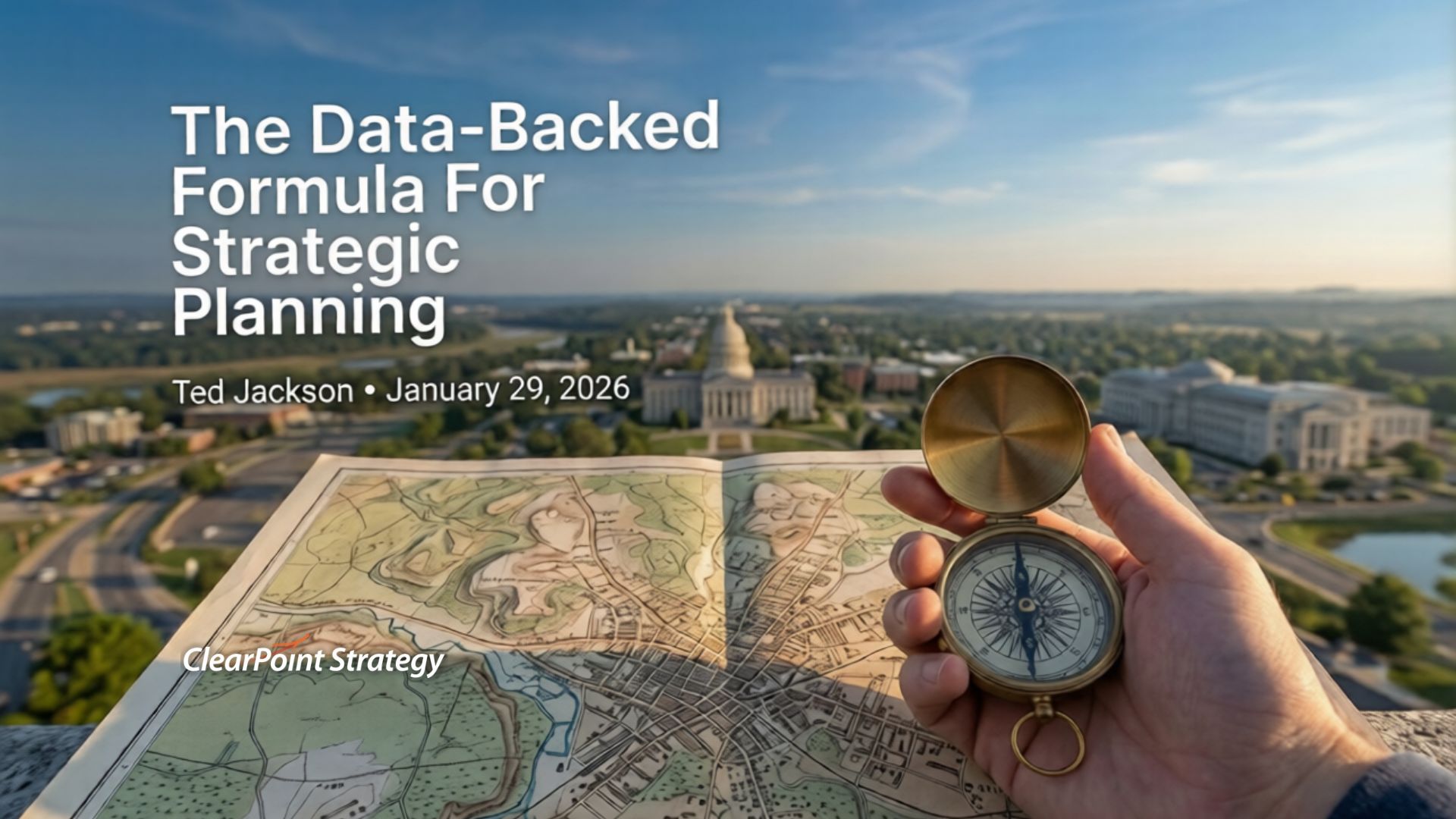Discover how city governments can streamline strategy management with automation, data-driven insights, and public dashboards to improve efficiency and transparency.
City governments face the ongoing challenge of not just solving current issues but also preparing for a future of growth and change. While having a strategic plan is essential, it's only half the battle—how that plan is executed and tracked makes all the difference.
This is where specialized software becomes invaluable. By adopting strategy management software, local governments are able to automate processes, gather crucial data, perform complex calculations, and keep the public informed through real-time dashboards. With the right tools, cities can stay ahead of the curve and deliver on their vision for the future.
The Need for Efficient Strategic Plan Management

Cities are complex entities with numerous moving parts—ranging from infrastructure and public services to economic development and environmental sustainability. A strategic plan serves as a roadmap, guiding city officials in making informed decisions and allocating resources effectively. However, managing and monitoring the progress of such a plan can be daunting without the right tools.
Automation: Streamlining Strategic Plan Execution

One of the key benefits of using software to manage a city strategic plan is automation. Automation tools within strategic planning software allow city governments to reduce the manual workload involved in tracking progress and updating stakeholders. For instance, recurring tasks such as data entry, report generation, and progress tracking can be automated, freeing up time for city officials to focus on more critical, decision-making activities. This not only improves efficiency but also ensures that the strategic plan stays on track with minimal delays.
Data Collection: Building a Foundation for Informed Decisions

Effective strategic planning relies heavily on accurate and up-to-date data. Software designed for managing city strategic plans often includes robust data collection features, enabling cities to gather and organize information from various sources. Whether it's data on public health, economic indicators, or citizen feedback, having a centralized platform for data collection ensures that city officials have the insights they need to make informed decisions. Moreover, automated data collection reduces the risk of errors and inconsistencies, leading to more reliable outcomes.
Complex Calculations: Handling the Numbers Behind the Plan

City strategic plans often involve complex calculations to forecast outcomes, allocate budgets, and assess the impact of various initiatives. Advanced software solutions are equipped with tools to handle these complex calculations efficiently. Whether it's financial modeling, scenario analysis, or resource allocation, these software tools provide the computational power needed to process large datasets and generate actionable insights. This capability is particularly valuable when cities need to make quick adjustments to their plans in response to changing circumstances.
Public Dashboards: Enhancing Transparency and Accountability
Transparency is a cornerstone of good governance, and city strategic plans are no exception. Public dashboards, which are often integrated into strategic planning software, allow cities to share progress and outcomes with citizens in real-time. These dashboards can display key performance indicators (KPIs), project timelines, and other critical data points, providing the public with a clear view of how the city is performing against its strategic goals. This not only builds trust but also fosters a sense of community involvement in the city's long-term vision.

Real-world example—the City of Coral Springs in Florida leveraged ClearPoint Strategy’s software to create a public dashboard that enhances transparency and accountability. By sharing real-time performance data on their website, Coral Springs keeps residents informed about the city’s progress on strategic initiatives, from public safety to community engagement. This initiative not only fosters trust but also encourages active participation from citizens in shaping the city's long-term vision.
Public dashboards like those used by Coral Springs not only build trust but also foster a sense of community involvement in the city's strategic efforts, helping to align government goals with citizen expectations.
Empowering Cities with the Right Tools
Managing a city strategic plan is a complex task, but with the right software, cities can significantly enhance their ability to execute their plans effectively. Automation, data collection, complex calculations, and public dashboards are just a few of the features that make these tools indispensable for modern city governance. By adopting these technologies, cities can ensure that their strategic plans are not only well-conceived but also well-executed, ultimately leading to better outcomes for their communities.
Ready to take your city’s strategic plan management to the next level? Discover how ClearPoint Strategy's software can ensure your city meets its long-term goals.

.svg)
%20The%20Power%20of%20Software%20in%20Managing%20a%20City%20Strategic%20Plan.jpg)



![Why Strategic Planning Fails (And What To Do About It) [DATA]](https://cdn.prod.website-files.com/637e14518f6e3b2a5c392294/69792f326ab0b1ac3cc24675_why-strategic-planning-fails-and-what-to-do-about-it-data-blog-header.webp)
